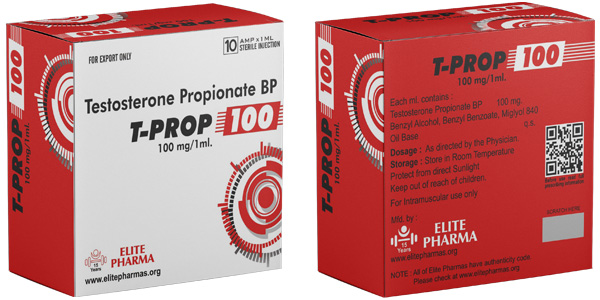Testosterone Propionate is a popular form of testosterone used in various medical treatments, especially in hormone replacement therapy (HRT) for men with low testosterone levels. While it offers significant benefits, it's essential to understand its potential side effects to use it safely and effectively. Let's dive into the common and not-so-common side effects of Testosterone Propionate injections.

Common Side Effects
Injection Site Reactions
- Pain and Swelling: One of the most immediate effects you might notice is discomfort at the injection site. It's common to experience some pain, swelling, or redness right after the injection. This usually subsides within a few hours or days.
Hormonal Imbalance
- Estrogen Conversion: Testosterone Propionate can convert to estrogen in the body, leading to symptoms like water retention, gynecomastia (enlargement of male breast tissue), and mood swings. These effects are often managed with medications that block estrogen.
Skin Changes
- Acne and Oily Skin: Increased testosterone levels can lead to oily skin and acne. This is similar to what some people experience during puberty and can usually be managed with good skincare routines.
Hair Growth
- Scalp Hair Thinning: While body hair may become thicker, some men may notice thinning hair on their scalp. This is due to the hormone's influence on hair follicles.
Mood and Behavior
- Mood Swings and Aggression: Testosterone can affect your mood, sometimes leading to increased irritability or aggression. It's important to monitor your emotional health and talk to your doctor if you notice significant changes.
Less Common but Serious Side Effects
Cardiovascular Issues
- Increased Blood Pressure: Testosterone Propionate can raise blood pressure, which might increase the risk of heart problems over time. Regular monitoring of blood pressure is crucial.
- Cholesterol Changes: It can also alter cholesterol levels, potentially leading to cardiovascular disease. A balanced diet and regular exercise can help mitigate these effects.
Liver Health
- Liver Strain: Although rare, high doses of testosterone can strain the liver. Regular liver function tests can help ensure your liver stays healthy.
Reproductive Health
- Reduced Sperm Count: Long-term use of testosterone can reduce sperm production, impacting fertility. If you’re planning to have children, this is an important consideration to discuss with your healthcare provider.
Sleep Apnea
- Worsened Sleep Apnea: Testosterone can exacerbate sleep apnea, a condition where breathing repeatedly stops and starts during sleep. If you have sleep apnea, ensure it's well-managed while on testosterone therapy.
Managing Side Effects
Regular Monitoring
- Medical Check-ups: Regular check-ups with your healthcare provider can help catch and manage side effects early. Blood tests to monitor hormone levels, liver function, and cholesterol levels are essential.
Lifestyle Adjustments
- Healthy Diet and Exercise: Maintaining a healthy diet and regular exercise can help mitigate many side effects, such as cardiovascular risks and cholesterol changes.
Medication Adjustments
- Dosage Tweaks: Your doctor might adjust your dosage or frequency to balance the benefits and side effects better. Never change your dosage without consulting your healthcare provider.
Support and Communication
- Stay Informed: Educating yourself about potential side effects and maintaining open communication with your doctor ensures a safer and more effective treatment experience.
Conclusion
While Testosterone Propionate injections can significantly improve quality of life for those with low testosterone levels, being aware of the potential side effects and managing them proactively is key. Regular medical check-ups, a healthy lifestyle, and open communication with your healthcare provider can help you enjoy the benefits while minimizing risks. If you have any concerns or notice unusual symptoms, don’t hesitate to reach out to your doctor. Your health and well-being always come first!








